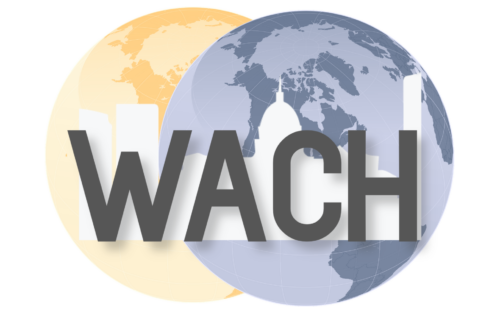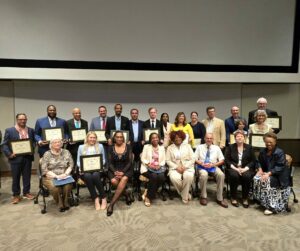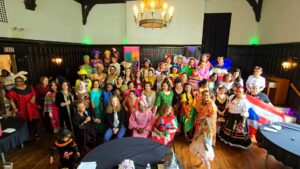Dr. Oya Dursun-Ozkanca – 2017 Torch of Global Enlightenment Award Honoree:
On Southeastern Europe, Peace-building
Words and Photography by Skye McDonald
 Professor by day, humanitarian and United Nations advocate also by day. Dr. Oya Dursun-Ozkanca, associate professor of political science and director of the international studies minor at Elizabethtown College, has an ever-lasting passion for peacebuilding efforts, and relations between southeastern Europe and the rest of the world. Her interests were formed during her high school years, she said.
Professor by day, humanitarian and United Nations advocate also by day. Dr. Oya Dursun-Ozkanca, associate professor of political science and director of the international studies minor at Elizabethtown College, has an ever-lasting passion for peacebuilding efforts, and relations between southeastern Europe and the rest of the world. Her interests were formed during her high school years, she said.
“I was immediately drawn to follow developments [about the Civil Wars in the Balkans]” Dursun-Ozkanca recalled, “and how people can kill other people that they used to live so harmoniously with. Humanitarian tragedy has always intrigued me.”
Through Dursun-Ozkanca’s career as a professor, she loves to teach her students about relations between Turkey and the European Union, especially about Turkey’s relationship with the western Balkans. This subject holds such significance for her that she conducted research and interviewed political elites about it in the summer of 2013. Dursun-Ozkanca had been invited as a Visiting Fellow to study at the London School of Economics and work in the Research on South Eastern Europe research center (LSEE).
“Turkey has recently been pursuing a very active foreign policy in the Western Balkans,” she said. “I wanted to know why that is the case and what implications it has on Turkish foreign policy, Turkey-West relations, as well as Turkey-European relations.”
Turkey has had a very long history with the European Union. In 1959, it first applied for the membership in what was then known as the European Economic Community. Turkey received an associate member status in 1964 and was recognized as a candidate country in 1999. In 2004, access negotiations between Turkey and the European Union were opened. However, efforts to speed up the process were hindered by Cyprus’ involvement. Dursun-Ozkanca finds the political unrest and border negotiations a hot topic for continuous discussions.
Dursun-Ozkanca is an advocate for peacebuilding operations, which were emphasized after the Arab Spring in 2011, in which the government repeatedly suppressed peaceful protesting. The protesters, Dursun-Ozkanca said, were advocating for civil rights from the Bahrain government. The political uproar increased to such an extent that the government demolished the Pearl Roundabout Monument on March 18th that year.
“The courage of protesters is inspirational.” Dursun-Ozkanca noted. “We should never take our liberties for granted, as there are so many people that are willing to risk their lives to achieve such comparable rights.”
Born in Turkey, Dursun-Ozkanca has always been focused on the country. She is interested in studying the changes in Turkish society throughout the years, as well as in the country’s political entanglements. As a political scientist, Dursun-Ozkanca is intrigued by how the government has continuously suppressed the civil liberties, especially following the recent coup attempt against President Recep Tayyip Erdoğan.
Dursun-Ozkanca especially remembers a trip to Athens, Greece in 2004. One night, she was shopping for earrings at a street market, when a vendor noticed her Turkish accent. When he asked if she was Turkish, she verified that she was, he yelled to the other street vendors, “Look over here! We have a Turkish sister!” Dursun-Ozkanca was worried what people would think of her Turkish descent because of the 1824 Greek War of Independence with the former Ottoman Empire, but everyone was friendly towards her.
“Every time I’ve traveled abroad, some of my biases and stereotypes have been shattered drastically,” Dursun-Ozkanca proclaimed. “I really recommend people to travel internationally. You get to make your own observations about cultures and how borders shouldn’t exist in the first place because you share so many commonalities that you discover a different perspective. It leads to people questioning why hostilities arise in the first place.”
Dursun-Ozkanca has published multiple volumes on peacebuilding, including one text about the European Union as an actor in sector security reform, and how sector security is established in post-conflict zones.




